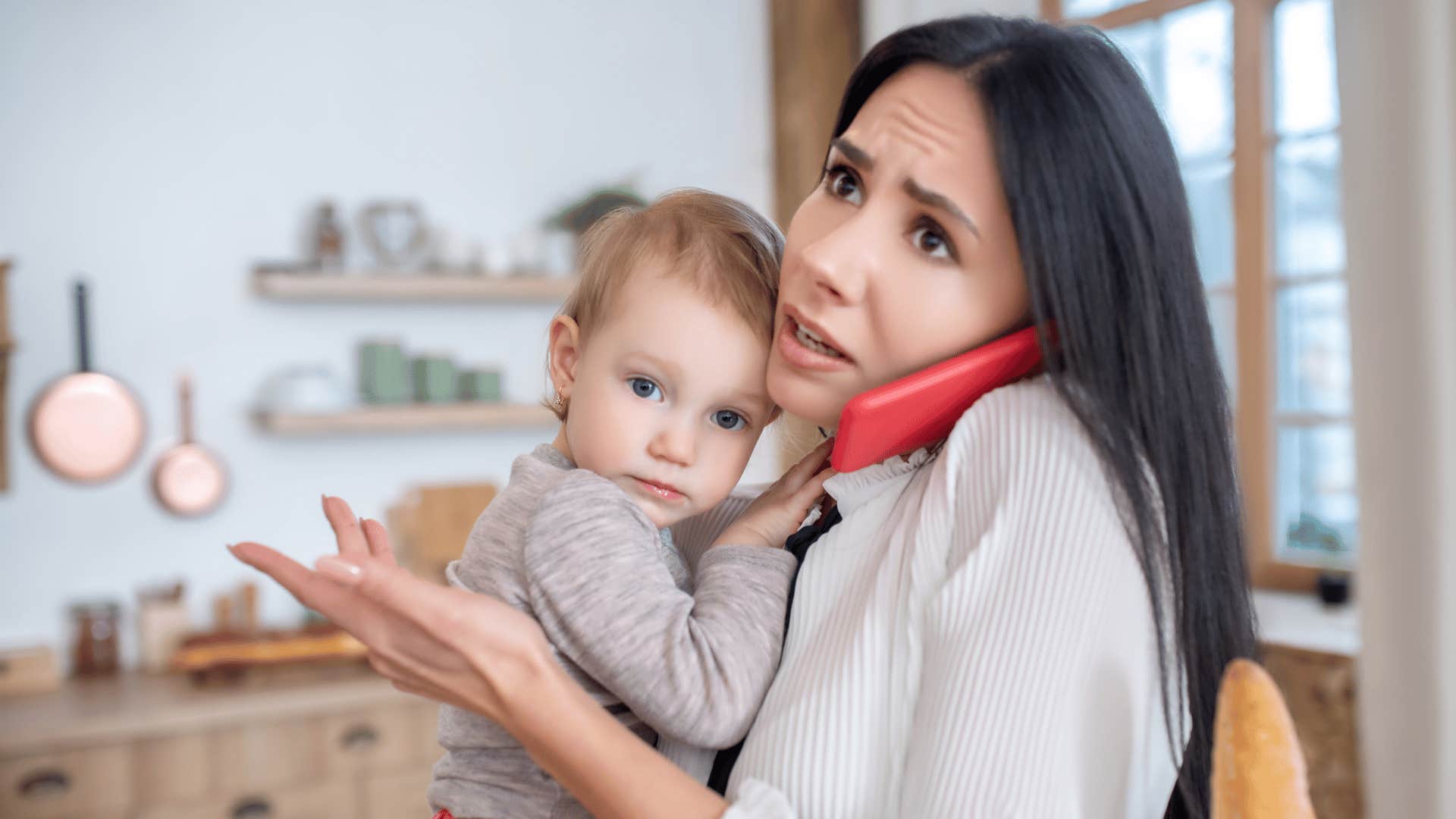6 Subtle Signs You Didn't Grow Up In A Safe Home, Even If You Were Told It Was Normal
The impact of an unsafe childhood environment is felt into adulthood.
 Getty Images | Unsplash
Getty Images | Unsplash An unsafe home can create a core of instability in a child that is challenging to recognize and overcome as an adult. You might feel like you are always running, needing rescue, feeling insufficient and anxious to the point you want to shut down your emotions.
There are some signs that can indicate the home you grew up in felt unsafe to you as a child. Knowing the indicators can help you understand how it has affected your life as an adult.
Here are six signs you didn't grow up in a safe home, even if you thought it was normal:
1. Needing to be "rescued"
 Dmytro Zinkevych via Shutterstock
Dmytro Zinkevych via Shutterstock
People who grew up in unsafe homes often have a difficult time feeling like they are worthy of their desires, as suggested by researcher Sara Babad. Instead, they feel dependent upon others to provide for them or rescue them.
Often, they don't know how to provide or protect themselves because their unsafe home fosters an unhealthy dependence on a "rescuer." As a result, they often give their power away to others in hopes the "other" will rescue them. And when they are not rescued, they feel further betrayed and victimized.
— Jennifer Hargrave, Owner & Managing Attorney, Hargrave Family Law
2. Feeling you are never good enough
 PeopleImages.com - Yuri A via Shutterstock
PeopleImages.com - Yuri A via Shutterstock
Self-hatred that runs deep in an adult often means you were raised in a home that was not emotionally safe for you. Chronic criticism, bullying, or punishment from family members can ruin your self-esteem and make you constantly doubt yourself.
Over time, you start to believe you will never be good enough, whether in a relationship or the workplace. Research from The University College of London examined how self-hatred is a learned behavior, so it's wise to see a therapist to help you work through the negativity you may have encountered in your youth.
— Gloria Brame, Ph.D., Therapist
3. Feeling anxious for no reason
 evrymmnt via Shutterstock
evrymmnt via Shutterstock
Growing up in an unstable home, because of your parents' unpredictable emotions, you had to walk on eggshells around them. Scared of making a mistake, you learned that the best thing to do was remain silent.
Now, as an adult, you're an anxious person who has difficulty expressing your needs or desires. You're too scared to upset others, so you stay quiet to calm your nerves, fearful of starting a confrontation or argument.
According to research published in the American Journal of Psychiatry, childhood mistreatment leads to developing anxiety in childhood through early adolescence. These symptoms can continue into adulthood, affecting the way you express yourself to others.
If you feel anxious all of a sudden, like you're right back where you were as a child, it's one of the signs you grew up in an unstable home, and it's affecting you now.
4. Developing a fearful-avoidant attachment style
 Perfect Wave via Shutterstock
Perfect Wave via Shutterstock
A significant sign of growing up in an unsafe family environment is the development of a fearful-avoidant or disorganized attachment style. A meta-analysis published in the European Journal of Social Psychology helps show that while anxious or avoidant attachment can also occur, a fearful-avoidant attachment style is common among those who experienced neglect and abuse during childhood. Adults with this attachment style often fear close relationships due to past trauma, yet they also deeply crave the affection they were deprived of. This contradictory nature of their attachment makes it one of the most challenging styles to overcome.
— Erika Jordan, Dating Coach / NLP Practitioner
5. Using money as a means of control
 Slava Dumchev via Shutterstock
Slava Dumchev via Shutterstock
Anything I asked for, regardless of whether it was needed or reasonable, was vehemently denied. No, I was not entitled to clothes or a laptop for school. He controlled with money, which is a form of abuse explored by Sundari Anitha, University of Lincoln, UK. If there was a wedding, only then was I entitled to a new dress because others would be watching.
On family vacations, my sister would get an upgraded suite, but if I wanted to join, I would need to secure my own hotel room at my own cost. According to my father, I still had a lot to learn about money. When I turned 18, I never asked him for a penny again, and of course, he never offered.
— Emerald Myara, Author
6. Being emotionally unavailable
 AJR Photo via Shutterstock
AJR Photo via Shutterstock
Some common signs someone has suffered through some form of emotional neglect are a lack of self-worth or self-confidence, seeking emotional support or love from emotionally unavailable people, be that friendships or romantic partnerships, as supported by a study in the Child Abuse Review.
Feeling you are not enough pushes you to hide and not value yourself or your inherent gifts and talents. Overgiving and people-pleasing to try to “win over” the love and appreciation of others. Being emotionally unavailable and closed off from having fulfilling relationships in your own life.
— Michele Molitor, CPCC, PCC, CHt Your Mind Detective Master Coach & Hypnotherapist
Not every child is wanted, and not every home is a safe place. Growing up in an unsafe home can set you up with beneficial survival skills but at the cost of emotional peace. Yet, when the impact of the childhood environment is acknowledged for what it was, the adult who is no longer in the unsafe home of the past can step into a more emotionally stable future.
Will Curtis is a creator, editor, and activist who has spent the last decade working remotely.

